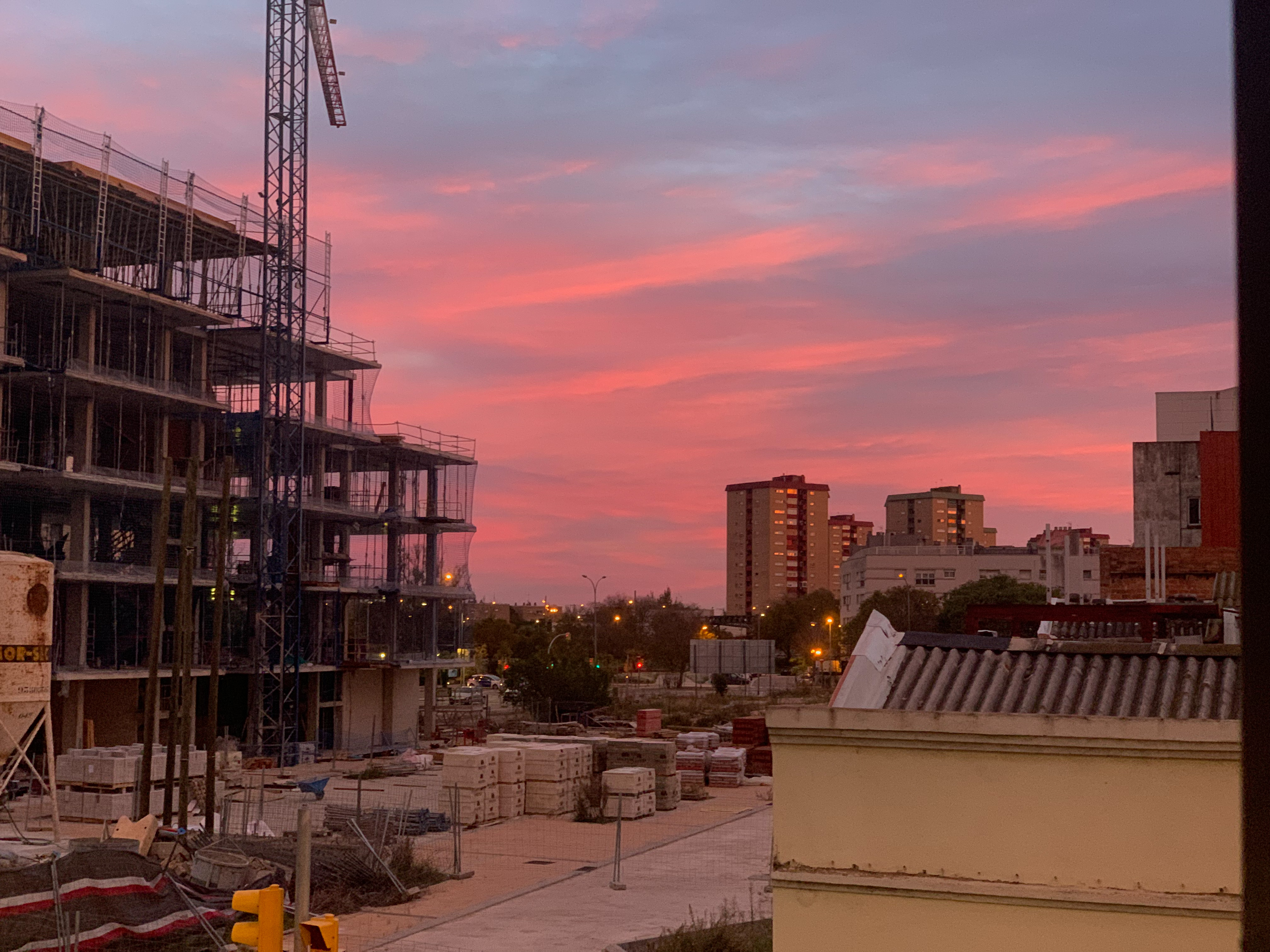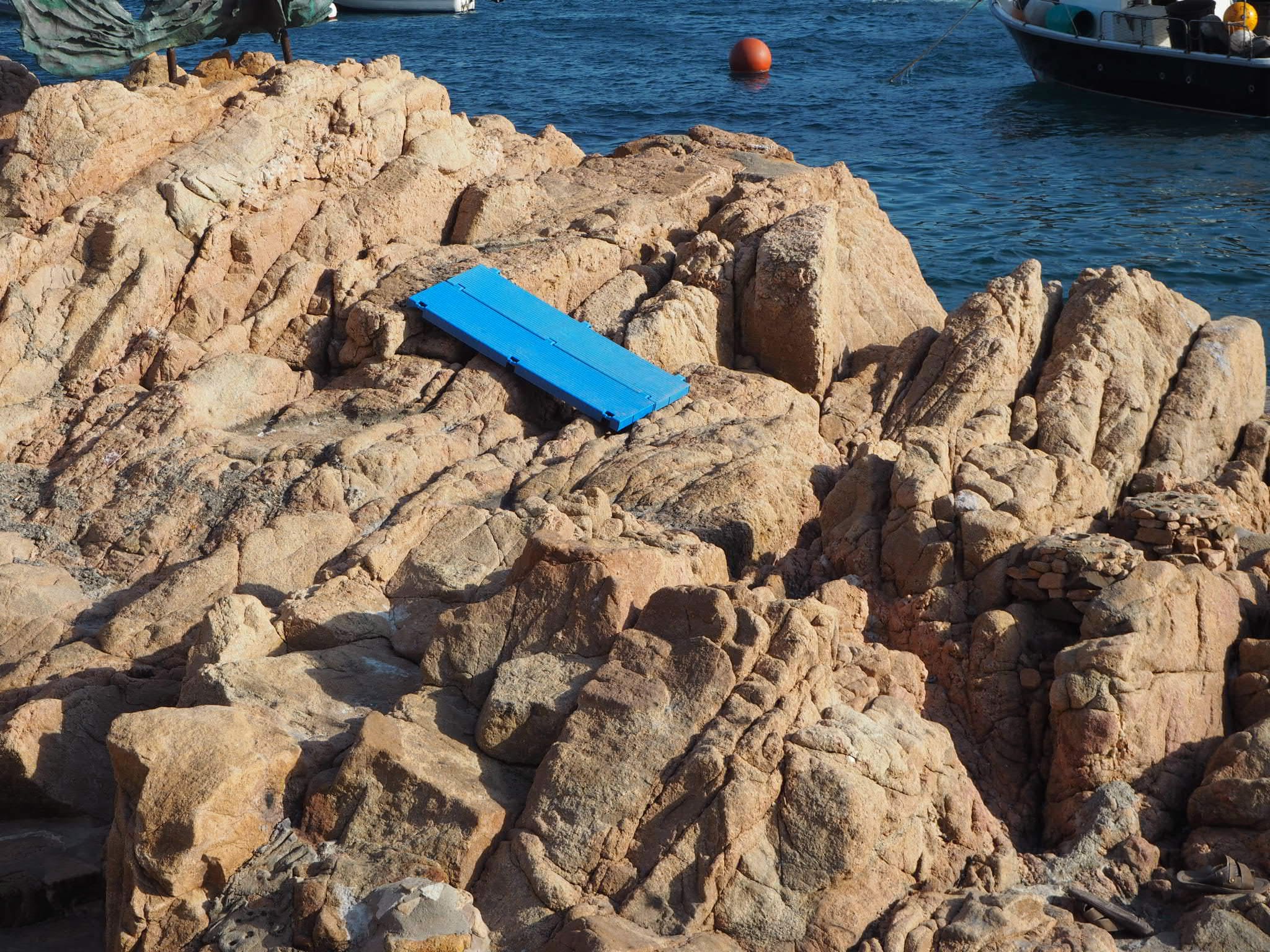
So this is my first approach, using observation and a field trip into the streets and nature to inject data into the scientific community. So for this experiment I asked for the help of my classmates to use the app iNaturalist and take pictures of the species they found around them, post them to the app and identify them. So the tools they need for the activity were mainly things for observation. To use the app the only thing you need is a pair of eyes and your phone. But to observe nature I made a list of things you could use to anotate and capture what you saw (see fig.1).
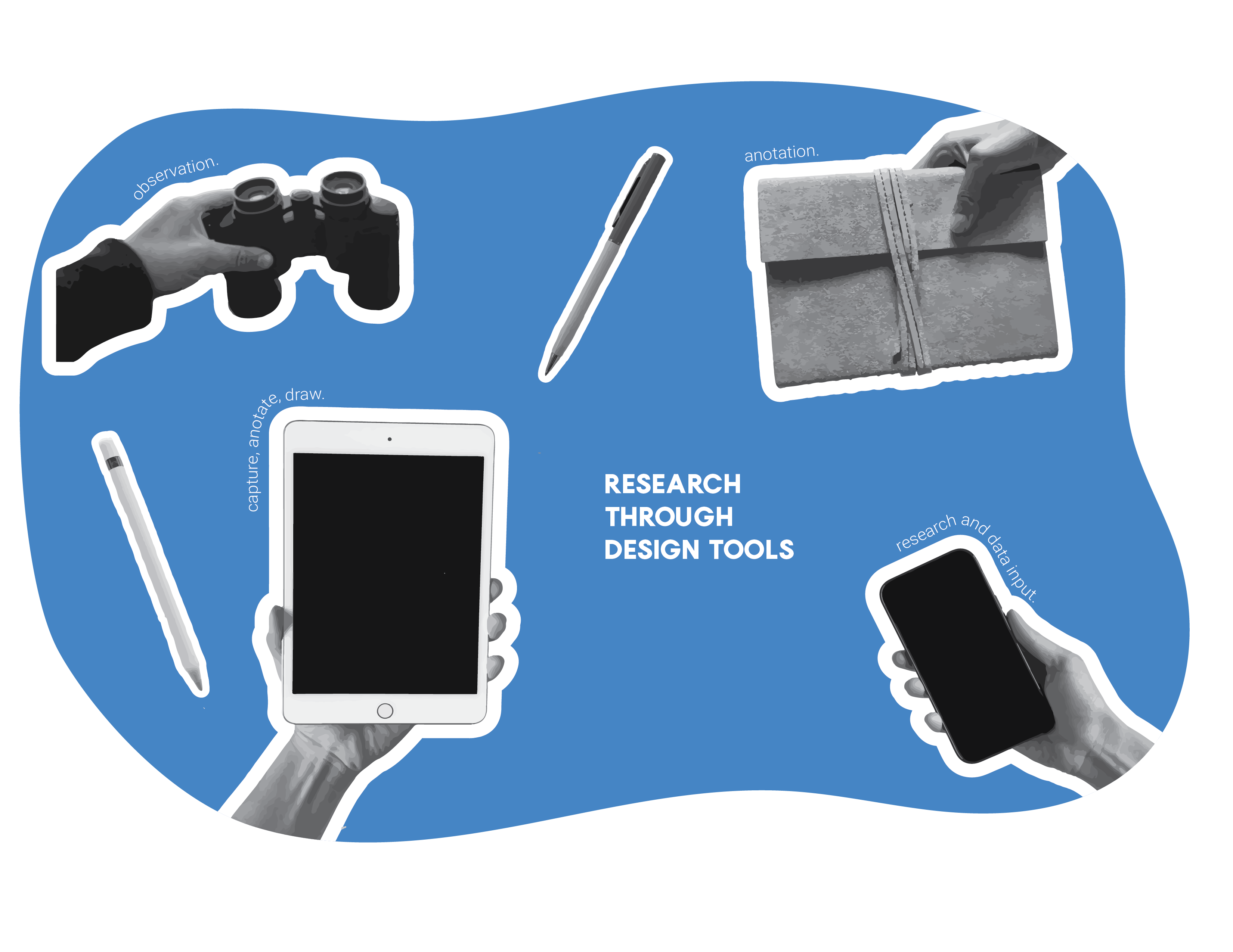
After that I needed to get information out of their activity. So to extract that information first I asked myself what insights I wanted to obtain from this experiment (see fig.2).
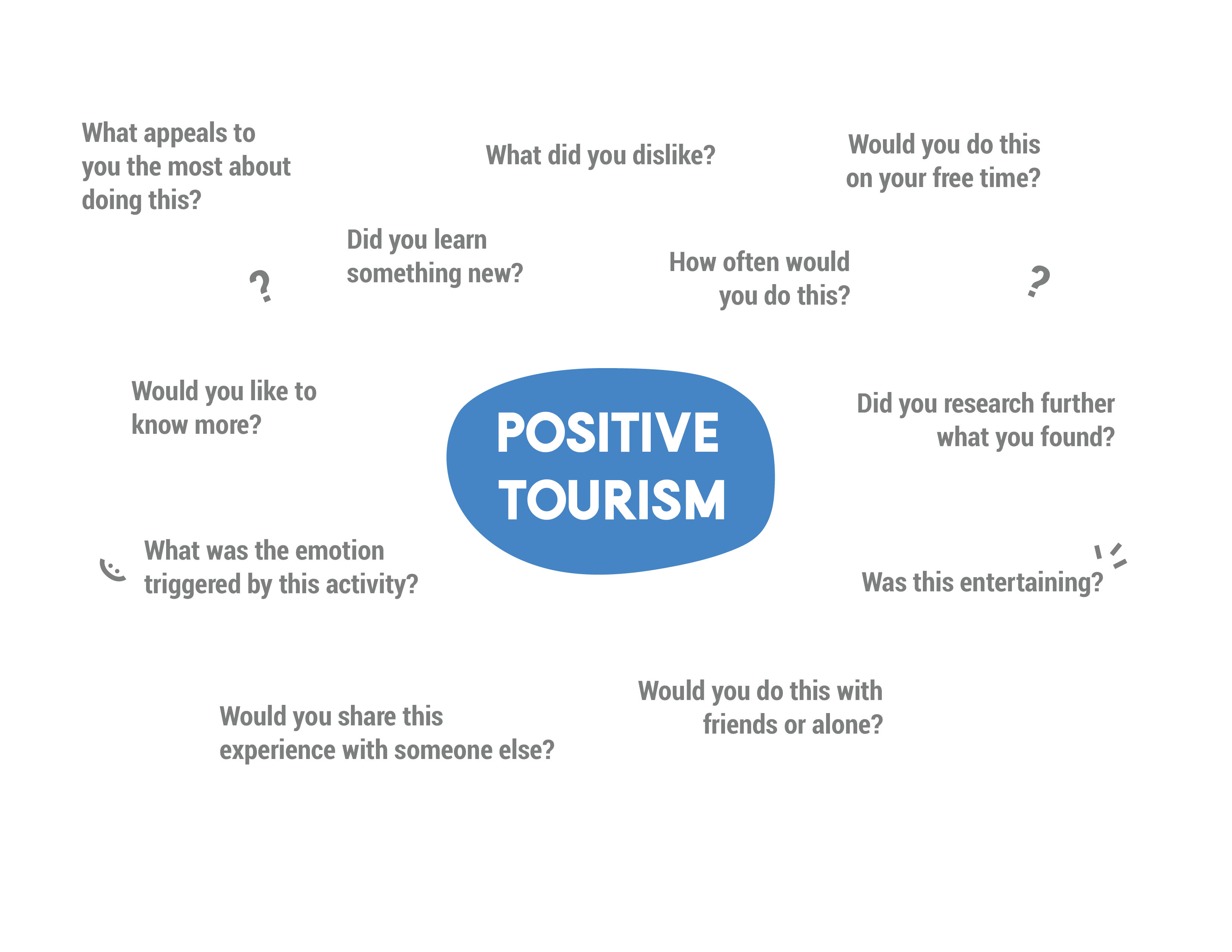
After writing down all of the questions I wanted to obtain answers so I designed a survey. The results were these.
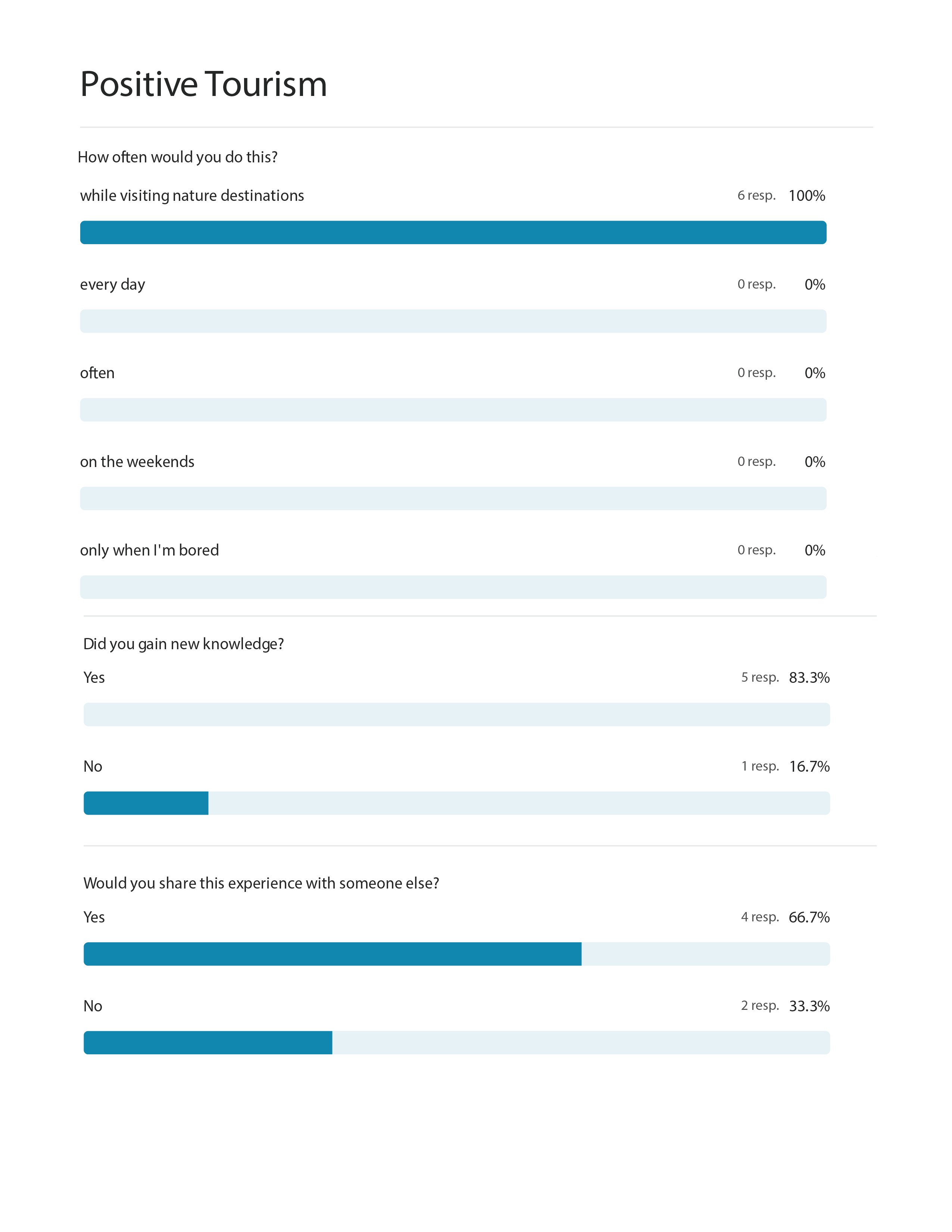
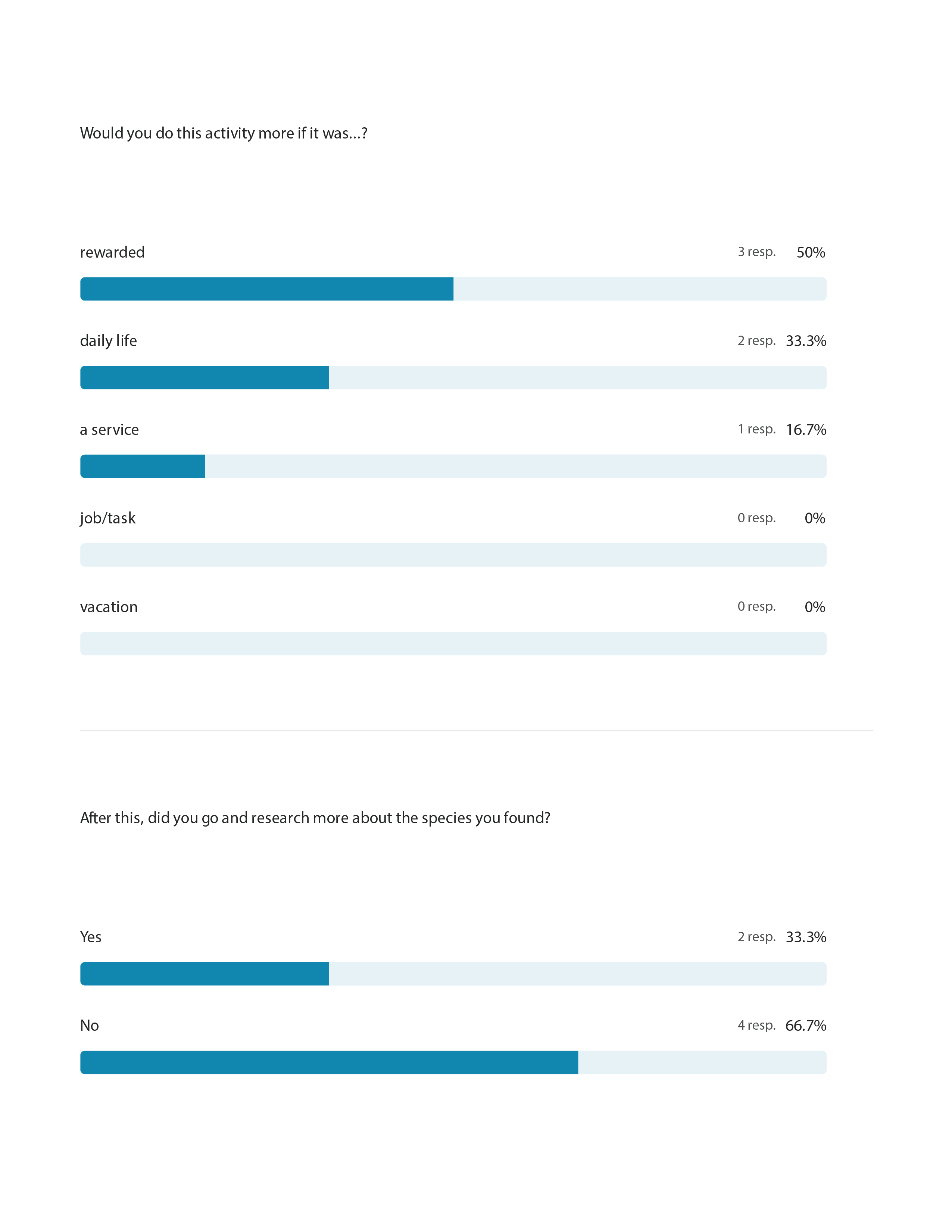
After doing the activity myself, I realized that this apps or platforms are in some way useful and I guess that for the researcher's community is a good data entry point. But for me it still left a lot of missing pieces. The app doesn't display a lot of information about the species, not even if this is the right species when identifying it. What I felt was missing or I would have loved to know is how can I interact with this species, what does it eat, where does it come from, are there some precautions I should take with it, are they endangered, and so many more questions. So I made a simulation of the information that could be added to the species information card.
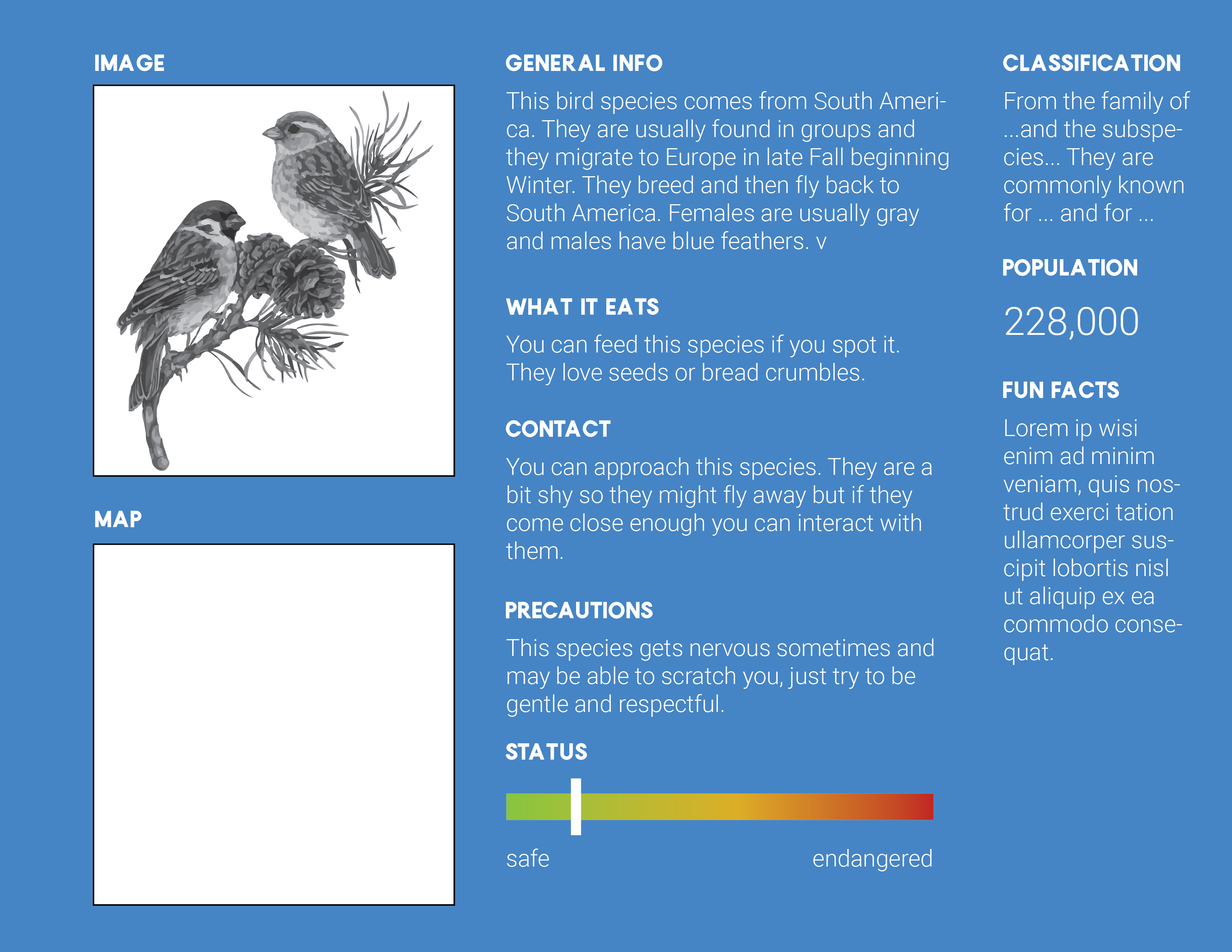
I also did the next image portraying how you would see it if it was in real time by scanning the species and how can information be portrayed with the help of AR, VR technologies.
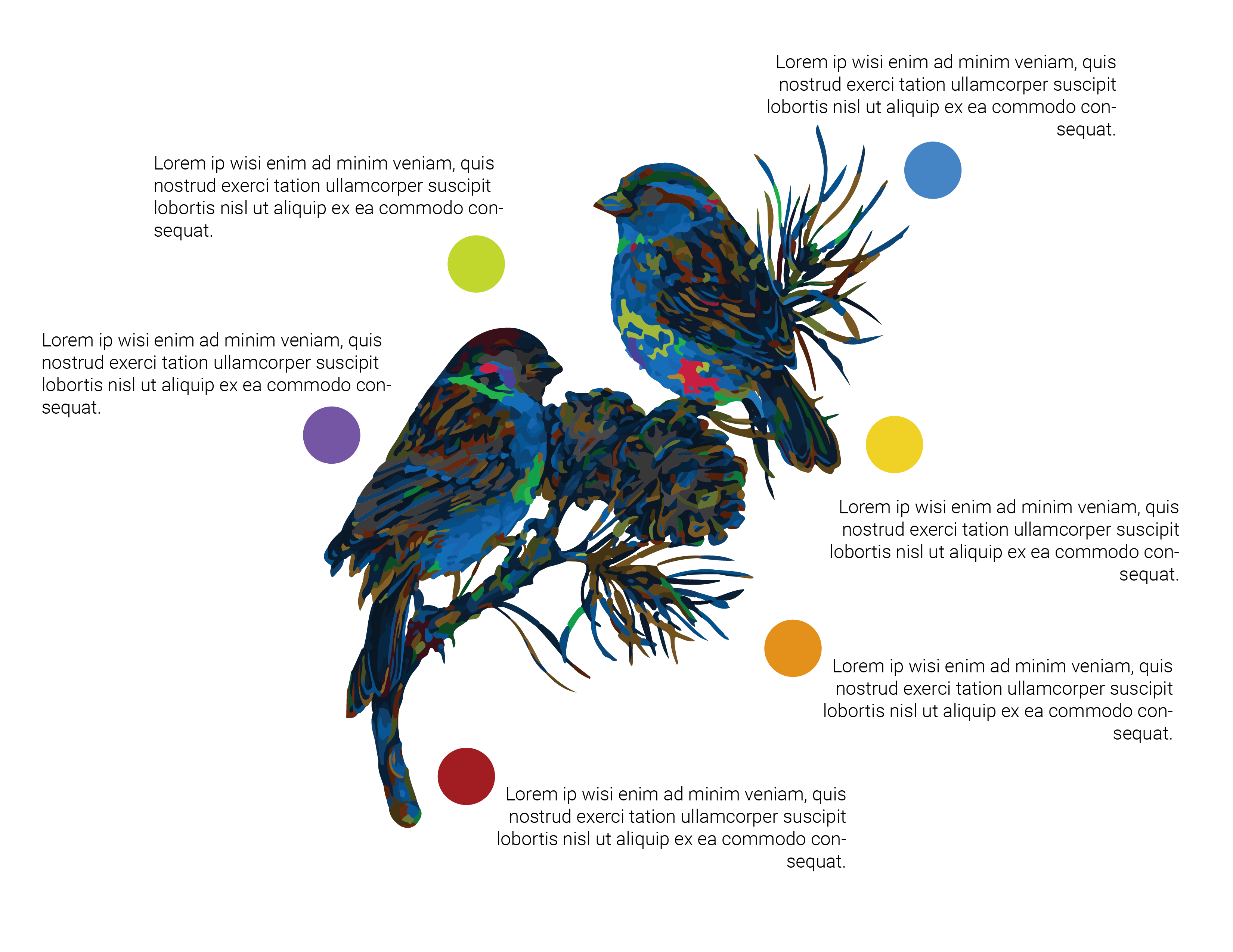
As a first approach I think this could be a good idea for helping research for regeneration of ecosystems. I wonder if by doing this in our daily lives we could be helping other people know more about the environment they are trying to help. This is a small action that doesn't requiere a lot of effort from participants but could contribute a lot to investigation. This could be replicated in a larger scale (tourism) by doing leisure activities that could also involve obsservation and data recollection for further research.

